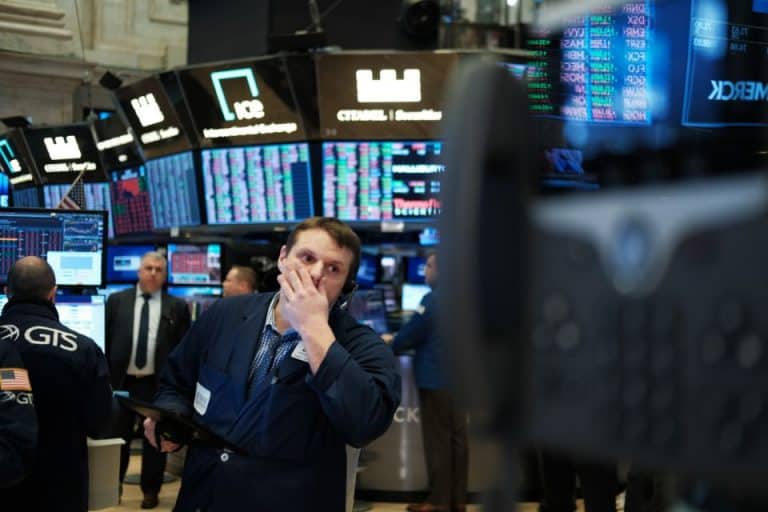

Stocks fell on Friday to close out a tough week as traders weighed President-elect Joe Biden’s $1.9 trillion stimulus plan along with the latest earnings from some of the biggest U.S. banks.
The Dow Jones Industrial Average closed 177.26 points lower, or 0.6%, at 30,814.26. Earlier in the day, the Dow was down more than 300 points. The S&P 500 dipped 0.7% to 3,768.25, and the Nasdaq Composite slid 0.9% to end the day at 12,998.50.
Dow Inc. and Chevron both fell more than 3% led the 30-stock average lower. Energy dropped 4%, posting its worst one-day decline since late November, pressuring the S&P 500.
The Dow and Nasdaq posted weekly declines of 0.9% and 1.5%, respectively, to snap four-week winning streaks. The S&P 500 also lost 1.5% over that time period.
Biden’s proposal, called the American Rescue Plan, includes increasing the additional federal unemployment payments to $400 per week and extending them through September, direct payments to many Americans of $1,400, and extending the federal moratoriums on evictions and foreclosures through September.
The plan also calls for $350 billion in aid to state and local governments, $70 billion for Covid testing and vaccination programs and raising the federal minimum wage to $15 per hour.
“There is real pain overwhelming the real economy — the one where people rely on paychecks, not investments, to pay for their bills and their meals and their children’s needs,” Biden said during a speech in Delaware Thursday night.
Tom Essaye, founder of The Sevens Report, said the proposal was “being met by a ‘sell the news’ reaction as markets already priced in most of what was included.”
“Plans for future historical stimulus, easy Fed policy and vaccines are now well known, and as such those catalysts simply don’t have the positive influence on stocks that they have over the past few months,” he added.
A third major relief bill has been widely expected in recent weeks, especially after the December labor market report saw the economy lose jobs and Democrats won two key Senate races in Georgia, giving Biden’s party narrow control of both houses of Congress.
“There was a fair amount of transparency as this deal came to fruition,” said Keith Buchanan, portfolio manager at GLOBALT. This made it easier for investors to price in the proposal’s potential impact on risk assets ahead of time, he said.
It remains unclear whether Biden’s proposal will be welcomed in a sharply divided Congress. Though Democrats hold both houses, they will need to sway moderate members of their own party, such as West Virginia Sen. Joe Manchin, and some Republicans to increase spending. Democrats originally pushed for another multi-trillion package last year before agreeing to a $900 billion bill in December.
Nonetheless, CNBC’s Jim Cramer noted that famed investor David Tepper’s outlook on stocks is still positive.
“I don’t want to say he’s wildly bullish. I would say he’s very constructive,” Cramer said Friday on “Squawk on the Street.” “He saw this coming. He knew to get out and now he feels there are pockets where you should be in, pockets of very reasonable valuations.”
On Friday, investors got fresh looks at major banks such as JPMorgan Chase, Citigroup and Wells Fargo. JPMorgan reported better-than-expected earnings, but the stock fell more than 1%. Wells Fargo and Citigroup also declined 7.8% and 6.9%, respectively, even after posting earnings that beat analyst expectations.
Meanwhile, the U.S. Commerce Department said retail sales fell 0.7% in December. Economists polled by Dow Jones expected sales to remain flat.